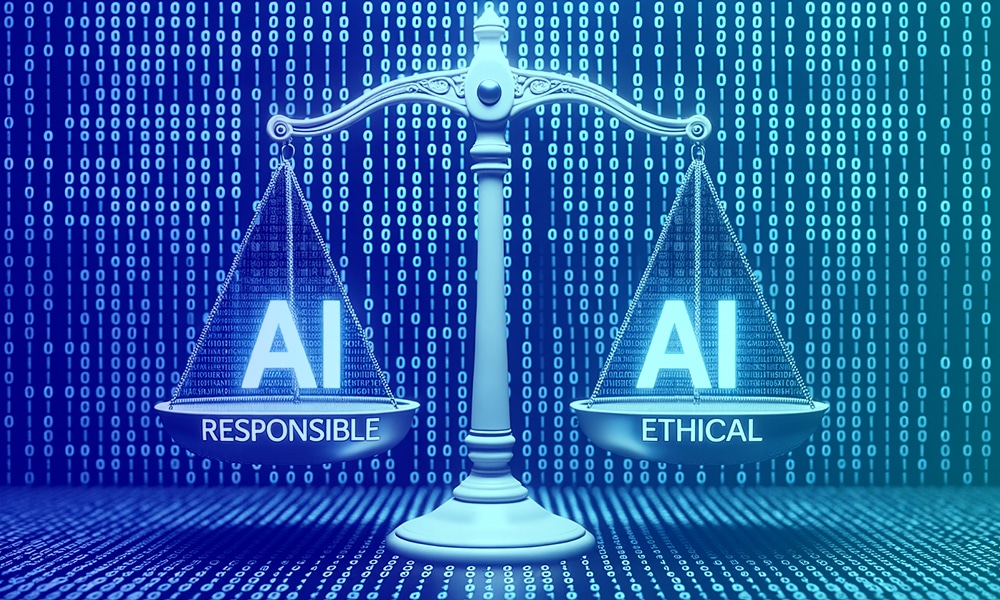How AI's "Learning" Differs From Human Learning: A Responsible AI Perspective

Table of Contents
Data Dependence vs. Experience-Based Learning
AI learning relies heavily on vast datasets for training, while humans learn from a diverse range of experiences, including sensory input, social interaction, and emotional context. This fundamental difference shapes the capabilities and limitations of both systems. AI, particularly in the realm of machine learning and deep learning, excels at identifying patterns and making predictions based on the data it's fed. However, this data dependence introduces several limitations.
-
AI algorithms need massive, labeled datasets to identify patterns and make predictions; humans can learn from far less structured data. Consider a child learning to identify a cat – they might see a few cats of different breeds, sizes, and colors, and quickly generalize the concept. An AI, on the other hand, might require thousands of labeled images to achieve the same level of accuracy, and even then, it may struggle with variations outside its training data. This highlights a key difference between supervised learning, common in AI, and the more nuanced learning process of humans.
-
AI learning is primarily data-driven; human learning is experience-driven and incorporates prior knowledge. Humans don't learn in a vacuum; our learning is shaped by our existing knowledge, beliefs, and experiences. This allows us to make connections and inferences that AI struggles with. For instance, understanding sarcasm requires a grasp of social context and emotional cues—elements largely absent in current AI models.
-
AI struggles with generalization beyond the data it’s trained on; humans can adapt and apply knowledge to novel situations. This lack of generalizability is a major challenge in AI. An AI trained to identify cats in photographs might fail to recognize a cat in a video or in real life. Humans, however, can easily adapt their understanding to new contexts. This difference is linked to the issue of data bias, which can significantly impact the fairness and reliability of AI systems. Unsupervised learning attempts to address this, but faces its own challenges.
The Role of Reasoning and Intuition
Humans utilize complex reasoning, intuition, and common sense – aspects largely absent in current AI systems. AI excels at specific tasks, often surpassing human performance, but lacks the holistic understanding and adaptability humans possess. This difference is particularly evident when considering artificial general intelligence (AGI), a long-term goal of AI research.
-
AI algorithms follow predetermined rules and algorithms; human learning involves critical thinking, problem-solving, and creative insights. While AI can process information incredibly fast, it does so based on predefined instructions. Humans, however, can employ critical thinking to solve problems creatively and adapt their strategies based on new information.
-
Humans can reason abstractly and make inferences based on incomplete information; AI typically requires complete and structured data. Humans are adept at filling in gaps in information using our existing knowledge and making educated guesses. AI, on the other hand, often struggles with incomplete or ambiguous data. This relates directly to the limitations of current cognitive abilities in AI.
-
AI lacks the intuitive understanding of context and nuance that humans naturally employ. Our ability to understand subtle cues, such as tone of voice or body language, allows us to interpret situations in a way that AI cannot currently replicate. This lack of common sense reasoning is a major obstacle in building truly intelligent AI systems.
Consciousness and Self-Awareness
A fundamental difference lies in consciousness and self-awareness. While AI can process information and perform complex tasks, it lacks subjective experience and self-awareness. This distinction raises critical ethical considerations in the development and deployment of AI.
-
AI learning is purely computational; human learning is intertwined with our consciousness and emotions. Our emotional responses influence our learning, shaping our motivations and priorities. AI, being purely computational, lacks such subjective experiences.
-
Humans possess metacognition (thinking about thinking), allowing us to reflect on our learning process; AI currently lacks this capability. We can analyze our own thought processes, identify biases, and adapt our learning strategies. AI, lacking this self-awareness, cannot introspect or improve its learning in the same way.
-
Ethical considerations arise from the potential for AI to mimic human-like intelligence without possessing human-like consciousness. This raises questions about accountability, responsibility, and the potential for unintended consequences. The development of responsible AI requires careful consideration of these ethical implications, including issues around AI ethics and the need for transparent AI systems.
The Implications for Responsible AI Development
Understanding the differences between AI learning and human learning is crucial for developing ethical and beneficial AI systems. Addressing the limitations of current AI while leveraging its strengths requires a responsible approach.
-
Addressing data bias is paramount to prevent perpetuating societal inequalities in AI applications. AI systems trained on biased data will perpetuate and amplify those biases, leading to unfair or discriminatory outcomes. This highlights the importance of diverse and representative datasets.
-
Ensuring transparency and explainability in AI algorithms is necessary to build trust and accountability. Understanding how an AI arrives at its conclusions is crucial for identifying and correcting errors, as well as building public trust. Explainable AI (XAI) is an active area of research aimed at making AI decision-making processes more transparent.
-
Focusing research on improving AI’s reasoning, common sense, and adaptability capabilities is crucial. This will enable the development of more robust and versatile AI systems that can better handle complex and nuanced situations. The pursuit of trustworthy AI requires addressing these limitations.
Conclusion
The contrast between AI's data-driven learning and human's experience-based, conscious learning highlights significant differences that impact the responsible development and deployment of AI. AI excels at specific tasks but lags behind human intelligence in areas such as reasoning, intuition, and self-awareness. To harness the benefits of AI while mitigating potential risks, we must prioritize research that addresses data bias, improves transparency, and focuses on creating AI systems that complement, not replace, human capabilities. Understanding these differences in AI learning is crucial for building a future where AI serves humanity ethically and effectively. Let's continue the conversation and work towards a future of responsible AI development.

Featured Posts
-
 Securing Glastonbury Resale Tickets A Practical Guide To Prices And Sales
May 31, 2025
Securing Glastonbury Resale Tickets A Practical Guide To Prices And Sales
May 31, 2025 -
 Tulsa Remote Program Do The Benefits Outweigh The Costs New Study Reveals Findings
May 31, 2025
Tulsa Remote Program Do The Benefits Outweigh The Costs New Study Reveals Findings
May 31, 2025 -
 Elon Musk And Donald Trump An Uncomfortable Saudi Meeting
May 31, 2025
Elon Musk And Donald Trump An Uncomfortable Saudi Meeting
May 31, 2025 -
 Estevan Road Sweeping Dates Complete List Now Available
May 31, 2025
Estevan Road Sweeping Dates Complete List Now Available
May 31, 2025 -
 Receta Simple Y Paso A Paso Croque Monsieur Perfecto
May 31, 2025
Receta Simple Y Paso A Paso Croque Monsieur Perfecto
May 31, 2025
